© 2025 MJH Life Sciences™ , Patient Care Online – Primary Care News and Clinical Resources. All rights reserved.
The Impact of Opioids on the Endocrine and Immune Systems
How much do you know about the impact of opioids on the endocrine and immune systems? Take our 9-question quiz to find out.
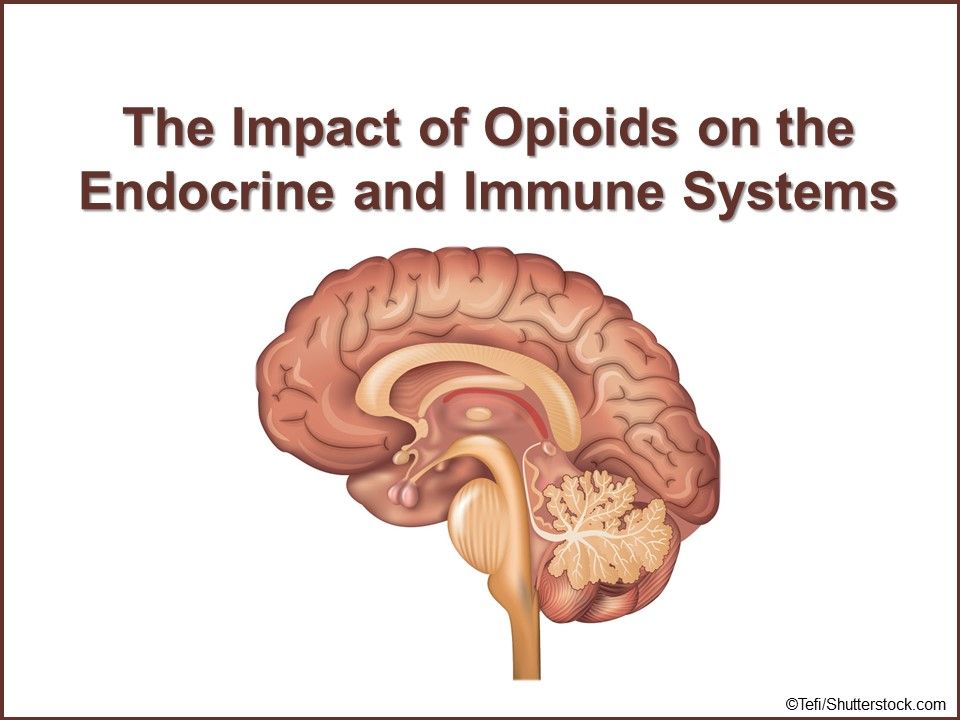
With headline news about opioids focused on abuse, addiction, and deaths associated with the drugs, other serious adverse effects linked to conventional use of opioids for pain management may be overlooked.
Opioid analgesics are known to affect the endocrine and immune systems, primarily with chronic use but some studies have shown impact at low doses or after very limited use. How familiar are you with the range of extra-analgesic effects of opioids? Click through the 9 questions above to find out.
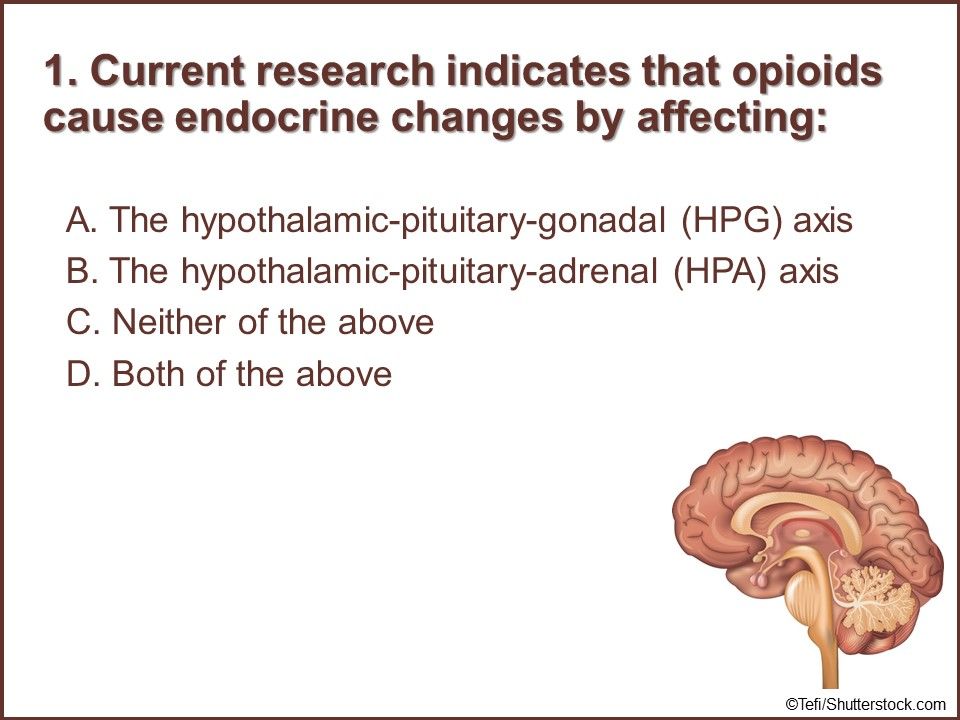
Question 1. Current research indicates that opioids cause endocrine changes by affecting the HPG axis, HPA axis, neither axis, or both axes?
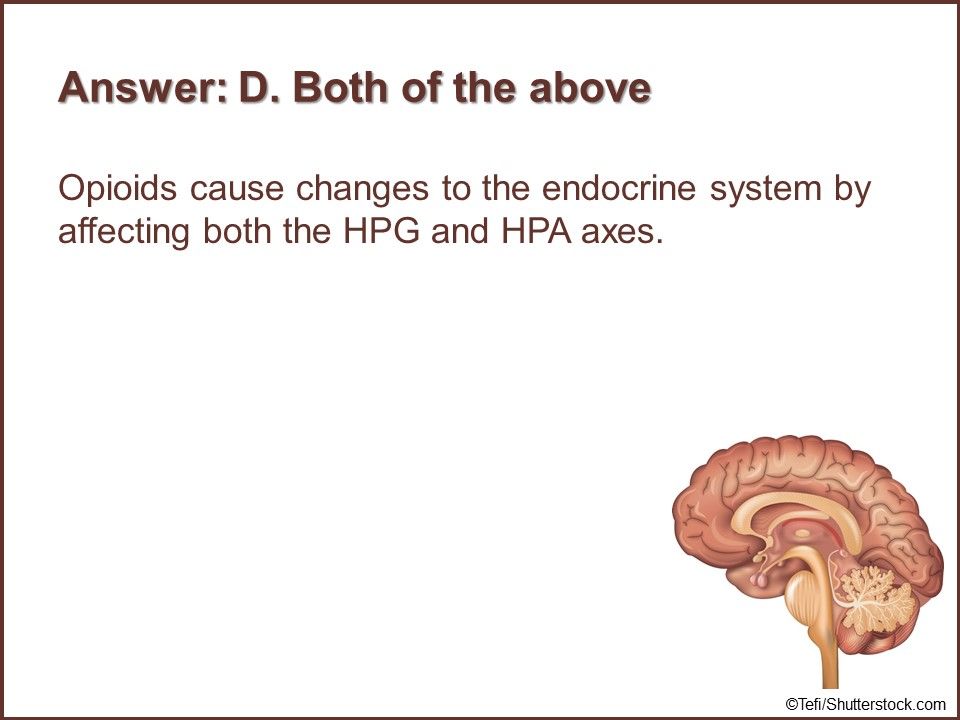
Answer: D. Both of the above. Opioids cause changes to the endocrine system by affecting both the HPG and HPA axes.
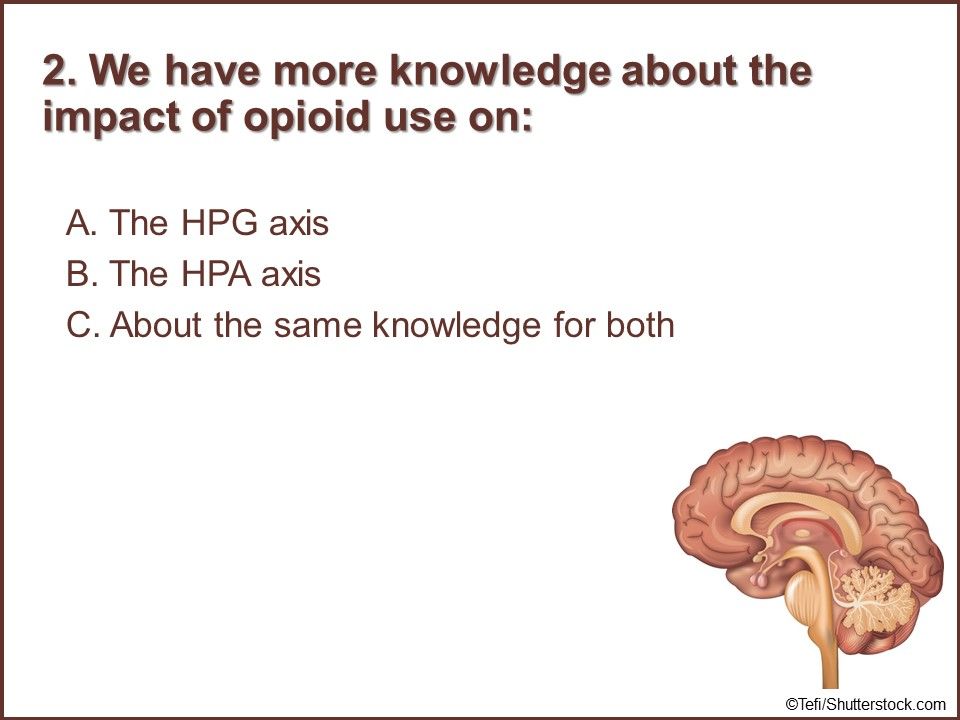
Question 2. We have more knowledge about the impact of opioid use on the HPG axis, HPA axis, or about the same for both?
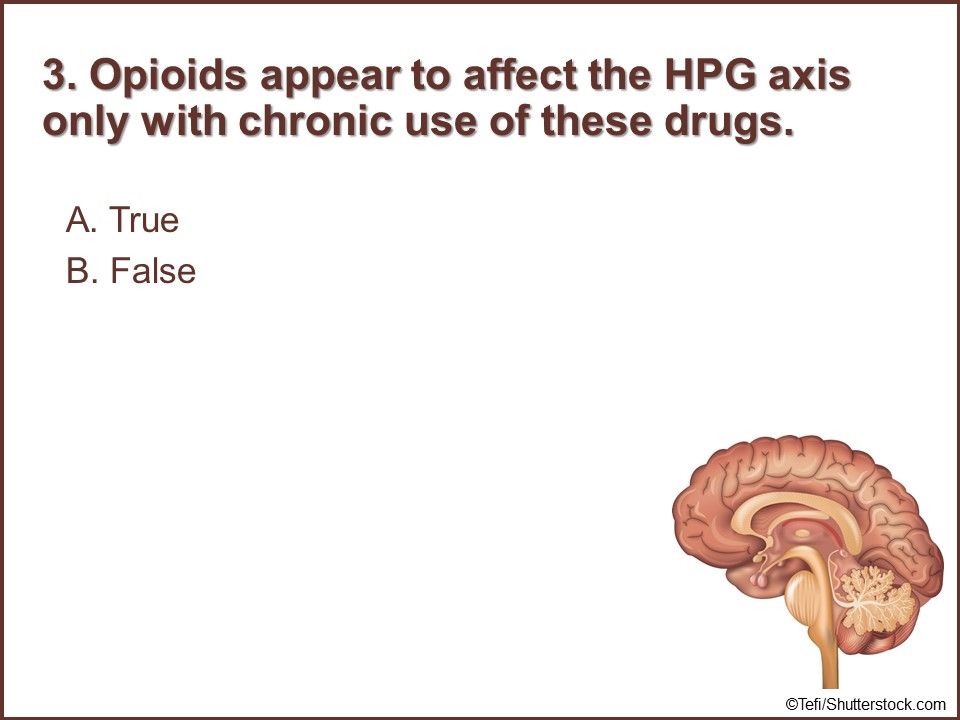
Question 3. True or false? Opioids appear to affect the HPG axis only with chronic use of these drugs.
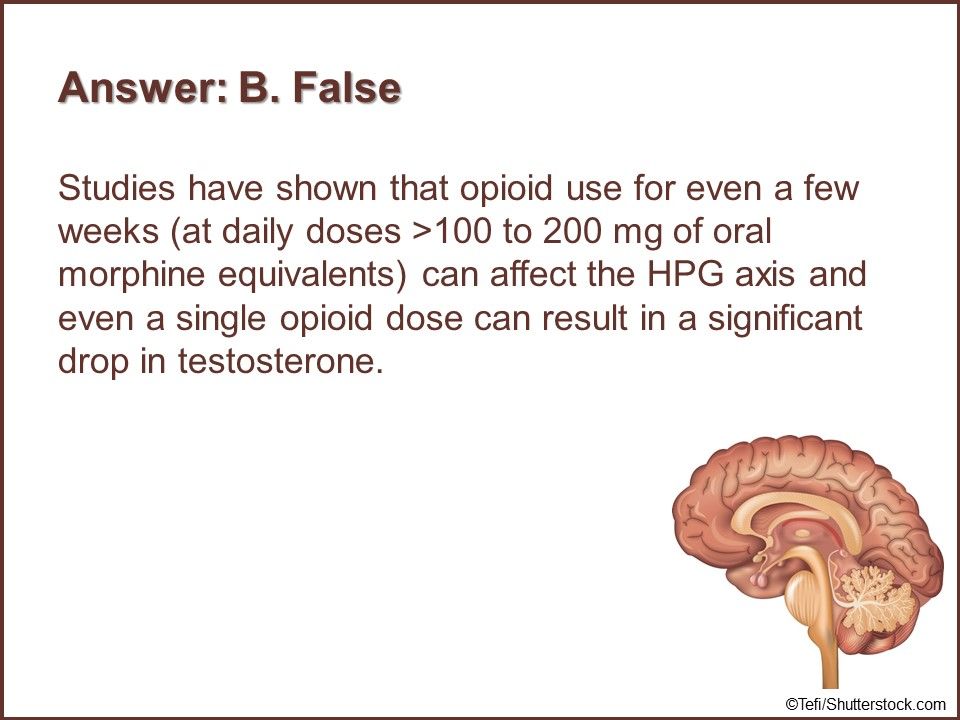
Answer: B. False. Studies have shown that opioid use for even a few weeks (at daily doses >100 to 200 mg of oral morphine equivalents) can affect the HPG axis and even a single opioid dose can result in a significant drop in testosterone.
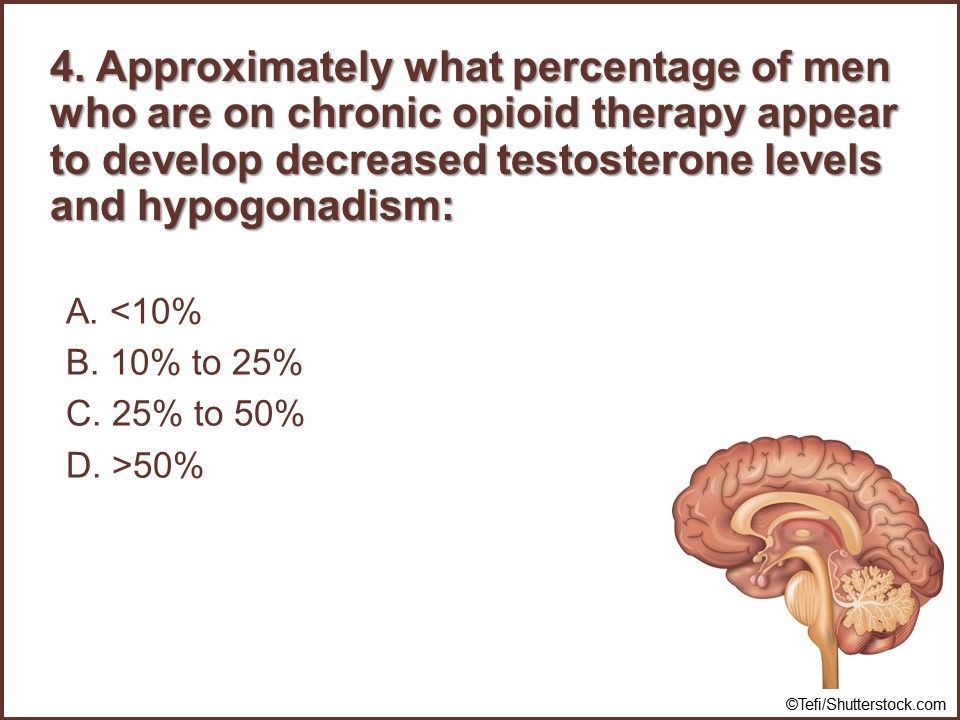
Question 4. Approximately what percentage of men who are on chronic opioid therapy appear to develop decreased testosterone levels and hypogonadism?
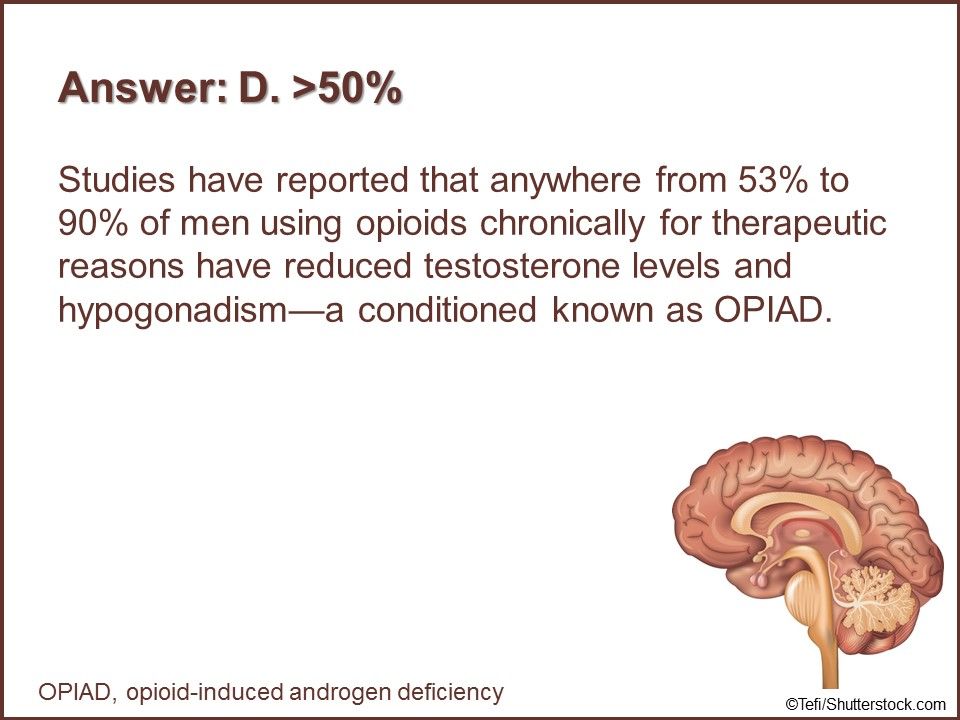
Answer: D. >50%. Studies have reported that anywhere from 53% to 90% of men using opioids chronically for therapeutic reasons have reduced testosterone levels and hypogonadism-a condition known as opioid-induced androgen deficiency.
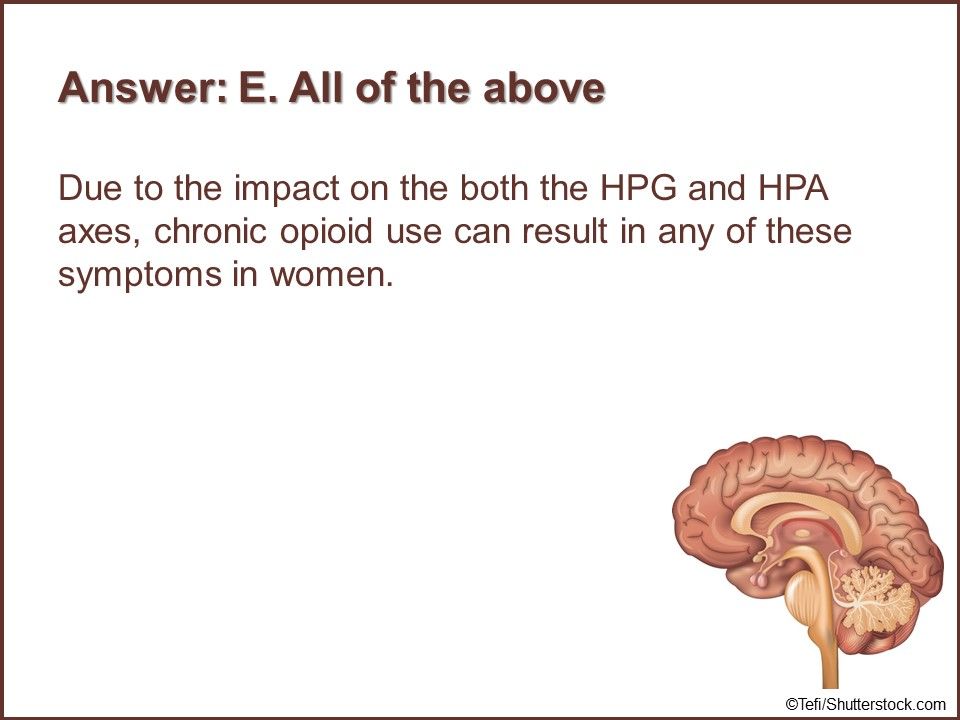
Answer: E. All of the above. Due to the impact on the both the HPG and HPA axes, chronic opioid use can result in any of these symptoms in women.
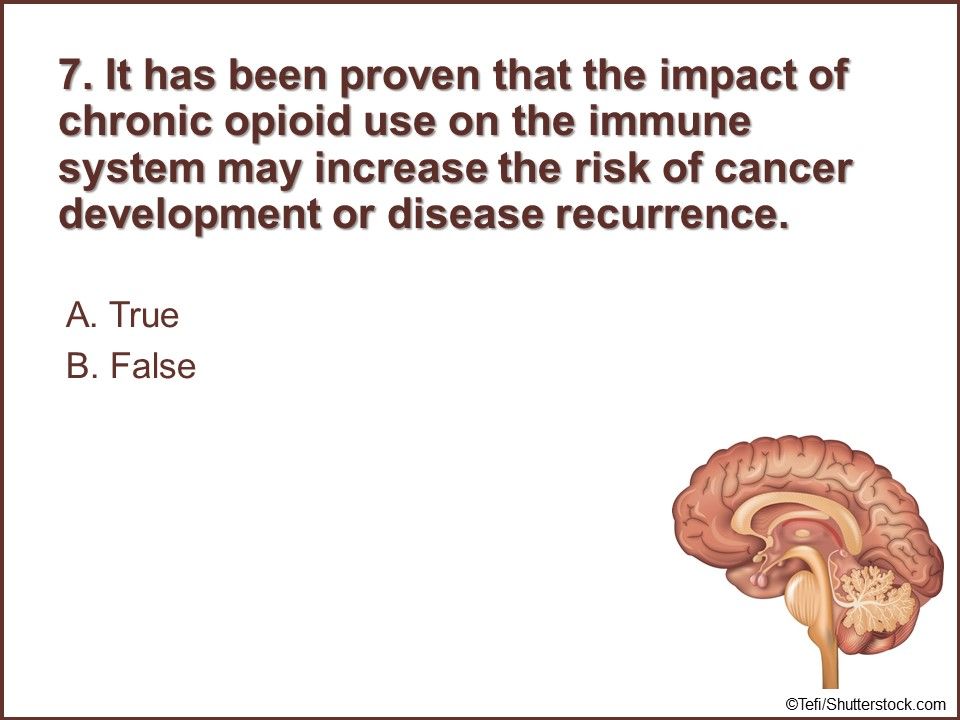
Question 7. True or false? It has been proven that the impact of chronic opioid use on the immune system may increase the risk of cancer development or disease recurrence.
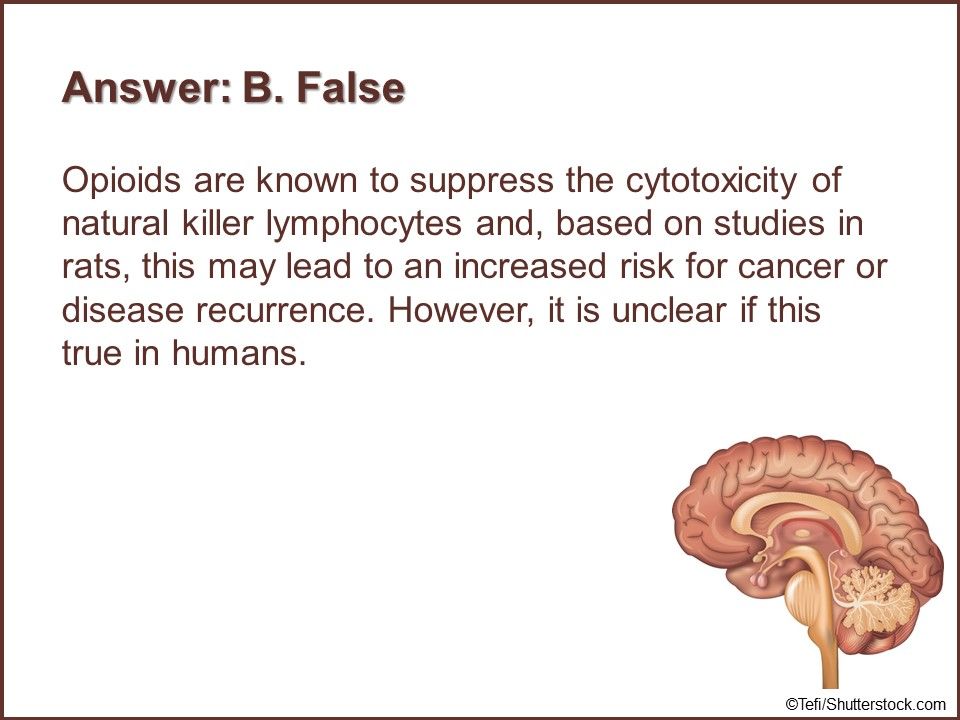
Answer: B. False. Opioids are known to suppress the cytotoxicity of natural killer lymphocytes and, based on studies in rats, this may lead to an increased risk for cancer or disease recurrence. However, it is unclear if this true in humans.
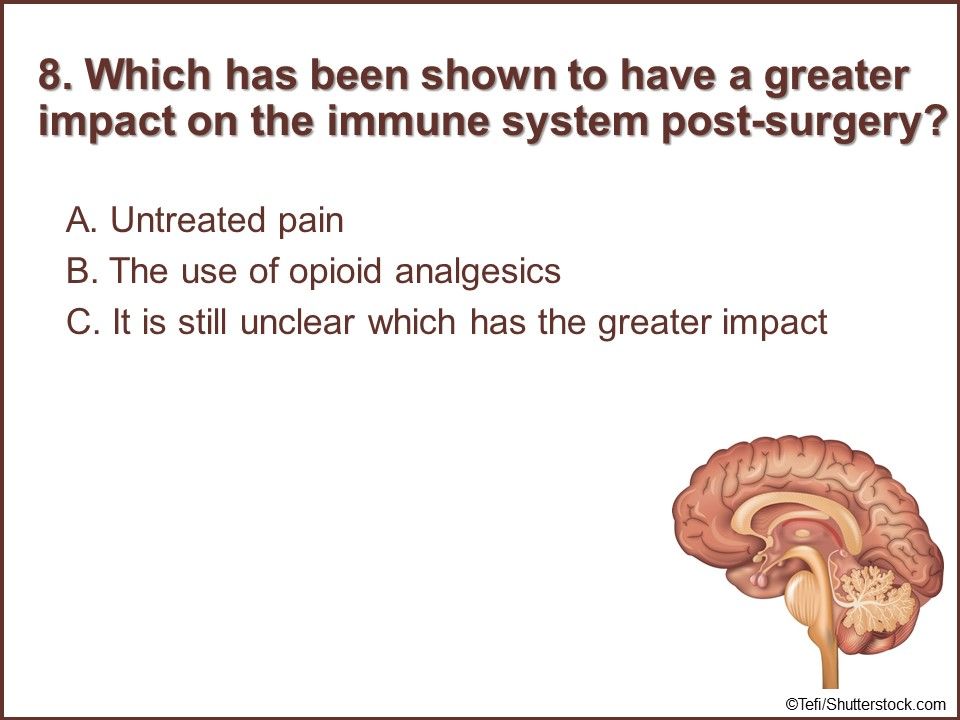
Question 8. Which of the above has been shown to have a greater impact on the immune system post-surgery?
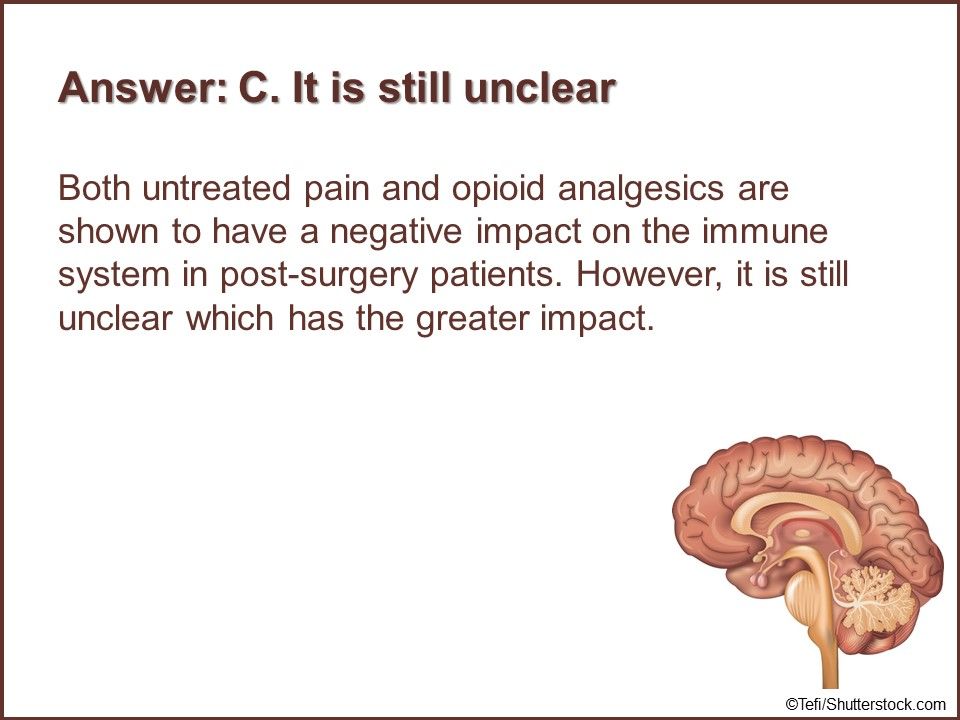
Answer: C. It is still unclear. Both untreated pain and opioid analgesics are shown to have a negative impact on the immune system in post-surgery patients, but it is still unclear which has the greater impact.
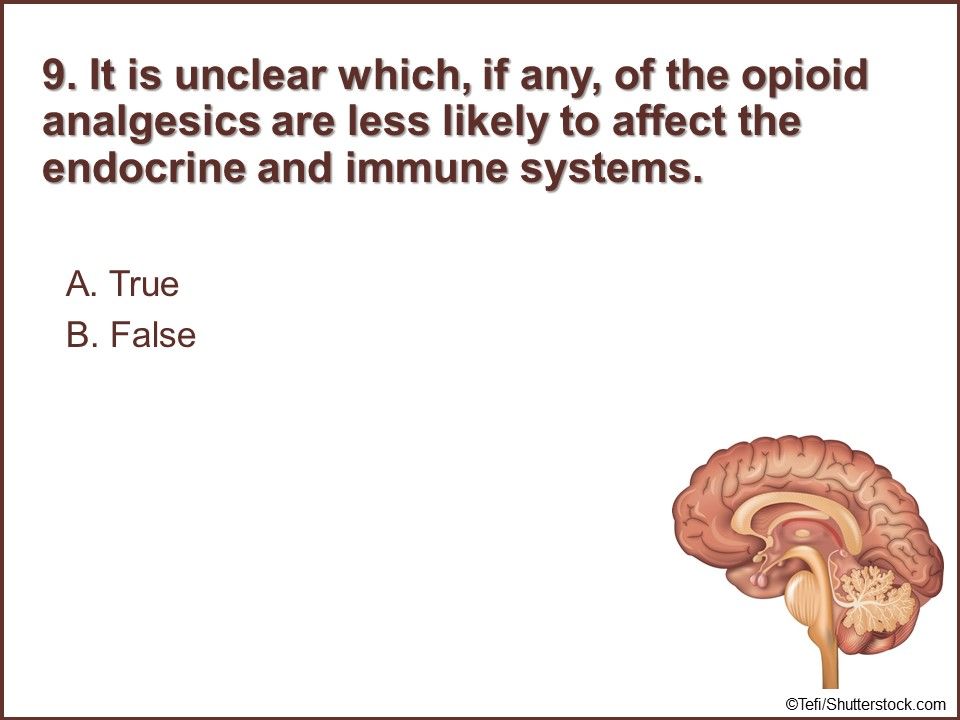
Question 9. True or false? It is unclear which, if any, of the opioid analgesics are less likely to affect the endocrine and immune systems.
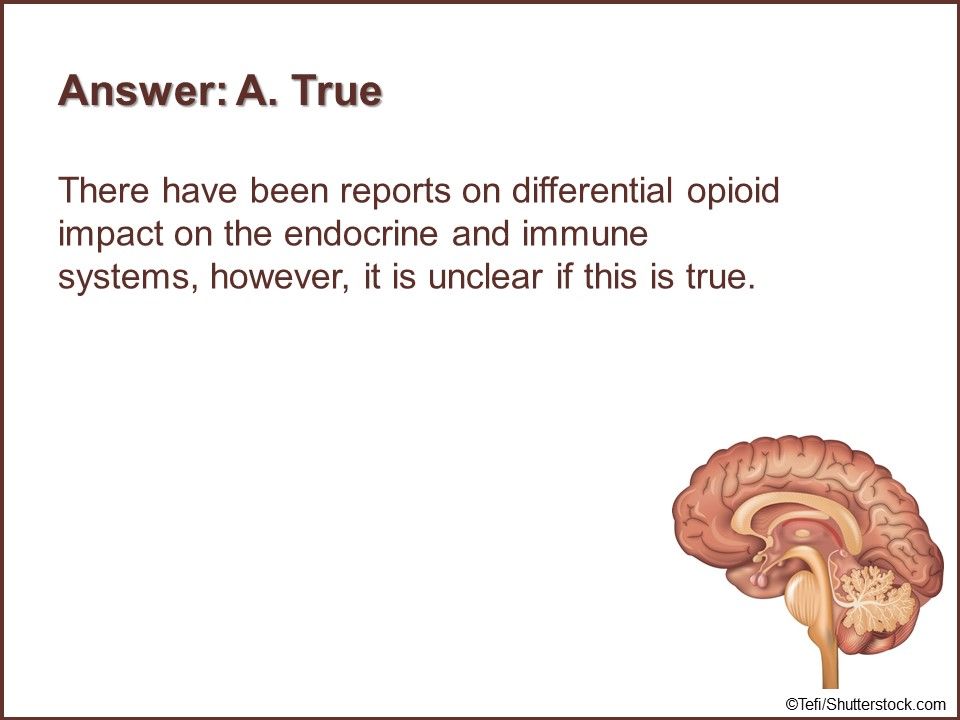
Answer: A. True. There have been reports on differential opioid impact on the endocrine and immune systems. One report suggests buprenorphine, a partial µ-receptor agonist and Î-receptor antagonist, may have less effect on the immune system than a pure µ-receptor agonist such as morphine, however, it is still unclear if this is true.
Reference: Haroutonian S. Postoperative opioids, endocrine changes, and immunosuppression. Pain Rep. 2018;3:e640.




